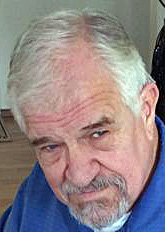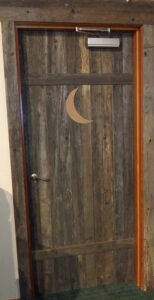

Lately I’ve suffered through a spate of films, TV specials, and even novels about adults who had been neglected, mistreated, or abandoned when they were children.
In almost every case they grew up to be neurotic, depressed, criminal, psychopathic, or even sociopathic. I got to wondering whether I had missed out on some childhood trauma that would have given me material for writing a best-seller.
Apart from an occasional broken bone or inconvenient operation, the only likely suspect was my parents’ divorce when I was nine, but there were never any of the bitter recriminations one hears about. Neither of them ever tried to pit their children against the other. In fact, both my parents remained good friends until they died in their eighties.
There was never any doubt that they loved me, especially my mother, who—according to my four siblings— “always loved Danny best,” because I was her firstborn. Both Mom and Dad had come of age during the Great Depression and had lived through some very rough times in the backwoods of Missouri.
Perhaps that was part of the reason my mother had always appeared so loving, kind, and patient, no matter how bad things got—or how obstreperous and irritating I must have seemed to her as I tried to make the journey from obnoxious adolescence to self-contained young adulthood. Both my parents died years ago, so I couldn’t ask them, but I recalled one story my mother often told that might explain it.
Ada Gates was born in Des Moines, Iowa, in 1923. When the stock market crashed in 1929, sending the nation careening into 25% unemployment, Mom was six years old, just beginning to find out what the world was like. Granddad never had made much money, and now there wasn’t any. After their third or fourth eviction for failure to pay rent, he decided to leave Iowa with his wife and eight children, move to Peace Valley, Missouri, build a log house, and try living off the land.
I would have thought the first order of business would be building the log house with ready materials in the form of trees growing on the land he settled. There was one bit of construction, however, that was even more important. That was the outhouse.
Miles Aubin of Boring, Oregon, has written lovingly of the nostalgia surrounding the old-time outhouse in the days before indoor plumbing. Miles was born in Boring about the same time as my mother, and had quite a career as educator, newspaper feature writer, and amateur historian in East Clackamas County.
Miles once told me that several of the schoolteachers he had worked with had been honored by having schools named after them. “I know I’ll never have a school named after me,” he said.
“But I hope someday the district will erect a Miles Aubin Memorial Outhouse.” Sure enough, after he died, the Sandy Historical Society replaced the Museum’s second-story fire escape with a replica of an authentic privy, with a bronze plaque honoring Miles Aubin.
While researching his story, I recalled the tale my mother had told me about her traumatic experience in the wilds of Southeast Missouri. She was the sixth of eight children and would often get lost in the shuffle of trying to get by on a hardscrabble homestead. Her next oldest sibling, my Aunt Sal, was often given the task of “looking after Ada.”
It was natural for Sal to become a little bossy, and for little Ada to look up to her and mostly do whatever she was told. Aunt Sal had a little pet chicken that accidentally got into the outhouse, hopped up on the bench, fell into the nether depths, and couldn’t get out. Aunt Sal tried poking a rake handle down the hole and coaxing the chicken to climb out, but to no avail. She was heartbroken, and my sympathetic ten-year-old mother wanted to help.
“There’s nothing for it but to climb down and get the chick,” Sal said.
“But I don’t think you can fit through the hole,” Ada said.
“I didn’t mean I was going down there,” Sal said.
“Oh, no; I’m not doing it.”
“You’ll just have to.” And she did. Aunt Sal held my mother by the ankles and let her down gradually and carefully until she could reach the chicken and pull it up to safety. The experience created a bond between Ada and Sal unparalleled in the annals of sisterly devotion.
I’m convinced that this ordeal was the source of my mother’s patience, understanding, and martyred outlook on life—and why I can’t look back to a similar traumatic event in my own life to build a best-selling story on.
No Comments
Leave a comment Cancel